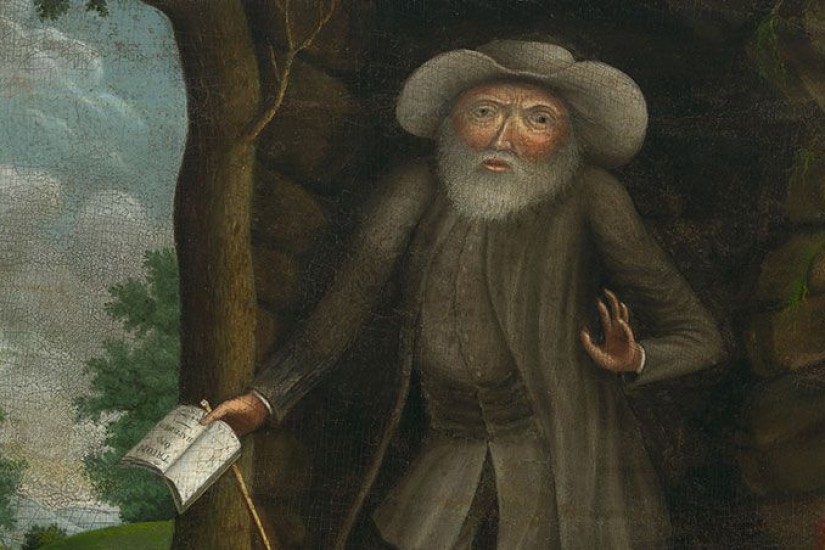On September 19, 1738, a man named Benjamin Lay strode into a Quaker meetinghouse in Burlington, New Jersey, for the biggest event of the Philadelphia Yearly Meeting. He wore a great coat, which hid a military uniform and a sword. Beneath his coat Lay carried a hollowed-out book with a secret compartment, into which he had tucked a tied-off animal bladder filled with bright red pokeberry juice. Because Quakers had no formal minister or church ceremony, people spoke as the spirit moved them. Lay, a Quaker himself, waited his turn.
He finally rose to address this gathering of “weighty Quakers.” Many Friends in Pennsylvania and New Jersey had grown rich on Atlantic commerce, and many bought human property. To them Lay announced in a booming voice that God Almighty respects all peoples equally, rich and poor, men and women, white and black alike. He said that slave keeping was the greatest sin in the world and asked, How can a people who profess the golden rule keep slaves? He then threw off his great coat, revealing the military garb, the book and the blade.
A murmur filled the hall as the prophet thundered his judgment: “Thus shall God shed the blood of those persons who enslave their fellow creatures.” He pulled out the sword, raised the book above his head, and plunged the sword through it. People gasped as the red liquid gushed down his arm; women swooned. To the shock of all, he spattered “blood” on the slave keepers. He prophesied a dark, violent future: Quakers who failed to heed the prophet’s call must expect physical, moral and spiritual death.
The room exploded into chaos, but Lay stood quiet and still, “like a statue,” a witness remarked. Several Quakers quickly surrounded the armed soldier of God and carried him from the building. He did not resist. He had made his point.
This spectacular performance was one moment of guerrilla theater among many in Lay’s life. For nearly a quarter-century he railed against slavery in one Quaker meeting after another in and around Philadelphia, confronting slave owners and slave traders with a savage, most un-Quaker fury. He insisted on the utter depravity and sinfulness of “Man-stealers,” who were, in his view, the literal spawn of Satan. He considered it his Godly duty to expose and drive them out. At a time when slavery seemed to many people around the world as natural and unchangeable as the sun, the moon and the stars, he became one of the very first to call for the abolition of slavery and an avatar of confrontational public protest.

